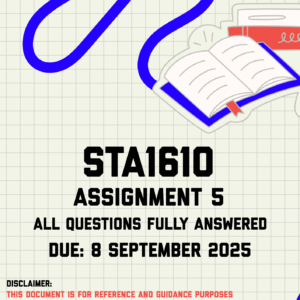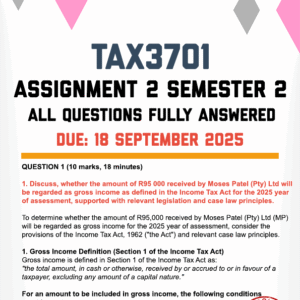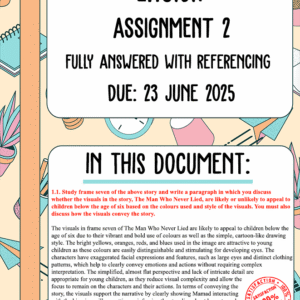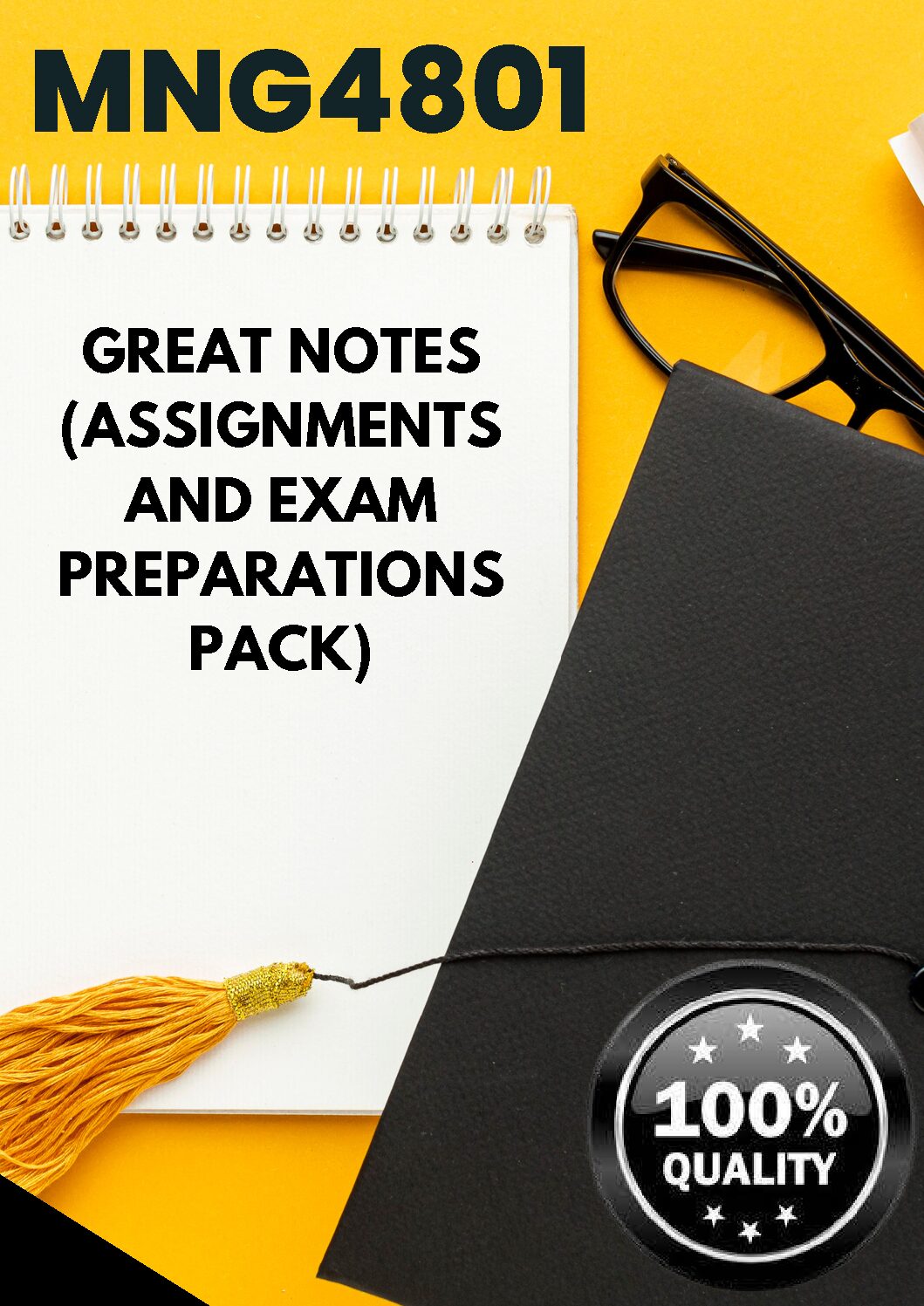Description
RDF2601 Assignment 2 Memo | Due 13 May 2025. All questions fully answered. QUESTION 1 1. Read the background information provided in the box below, then respond to the questions that follow. Resource development is a critical process in education that focuses on creating, curating, and optimising instructional materials and tools to enhance teaching and learning experiences. This involves the identification of educational needs, the design of relevant resources, and the integration of these materials into classroom practices to address diverse learner profiles. Effective resource development not only ensures alignment with curriculum standards but also promotes engagement, inclusivity, and adaptability to meet varying teaching contexts. 1.1. Define the term “resource development”. 1.2. List THREE (3) examples of natural materials used in resource development. 1.3. Distinguish between open-ended and closed-ended materials in resource development. Your feedback should be differentiated according to the aspects provided and be tabulated as illustrated below: 1.4. Discuss how you can design a fun and interactive activity using outdoor play equipment, such as hopscotch, beanbags, or playground markings, to help children to identify numbers effectively. Include the steps of the activity, the materials needed, and how it will engage the students in learning numbers. QUESTION 2 2.1. Describe THREE (3) elements that Lev Vygotsky’s socio-cultural theory emphasise in the context of resource use. 2.2. List the TWO (2) types of learners identified under learning styles. 2.3. A teacher plans to use flashcards to teach colours to a group of learners in the sensorimotor stage. Explain how appropriate this resource is based on Piaget’s cognitive theory. 2.4. Incorporating puzzles, storybooks, and outdoor play into a lesson creates an engaging and interactive learning experience. Suggest which learning styles and multiple intelligences these resources address. QUESTION 3 3.The recycle approach emphasises sustainability and creativity, enabling educators to maximise the value of available resources while minimising waste. 3.1. Define the term














![PYC1501-Multiple Choice (Questions & Answers) [2023]](https://studypass.co.za/wp-content/uploads/2022/12/1-18-300x300.png)








Reviews
There are no reviews yet.